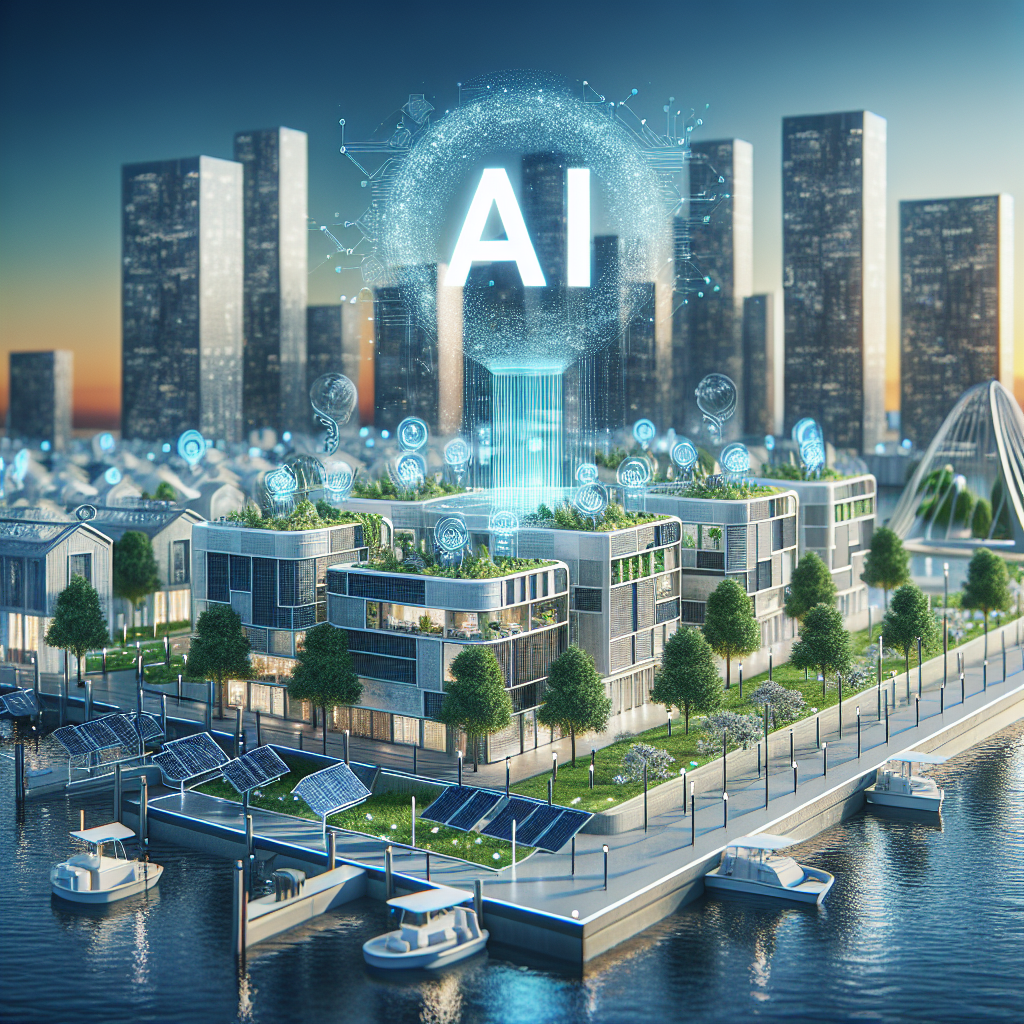Artificial intelligence (AI) has been transforming various industries, and architecture is no exception. The integration of AI in architecture has revolutionized the way buildings are designed, constructed, and operated. AI technology has the potential to enhance building performance, improve sustainability, and create more efficient and innovative designs. In this article, we will explore the impact of AI in architecture and how it is shaping the future of the industry.
Enhancing Building Performance with AI
One of the key benefits of AI in architecture is its ability to optimize building performance. AI algorithms can analyze vast amounts of data to identify patterns and trends that can improve the energy efficiency, comfort, and functionality of buildings. For example, AI can be used to optimize the layout of a building to maximize natural light and ventilation, reducing the need for artificial lighting and heating. AI can also be used to predict energy usage and optimize HVAC systems for maximum efficiency.
AI technology can also be used to improve the design process itself. AI algorithms can generate design options based on specific criteria, such as energy efficiency, cost, and aesthetics. This can help architects explore a wider range of design possibilities and make more informed decisions. AI can also be used to analyze feedback from occupants to improve building performance over time.
In addition to design and performance optimization, AI can also be used to enhance the construction process. AI-powered robots can be used for tasks such as site surveying, material handling, and bricklaying, reducing the need for manual labor and speeding up construction timelines. AI can also be used to monitor construction progress and identify potential issues before they become costly problems.
Improving Sustainability with AI
Sustainability is a key focus in modern architecture, and AI can play a significant role in improving the environmental performance of buildings. AI algorithms can analyze building data to identify opportunities for energy savings, water conservation, and waste reduction. AI can also be used to optimize building materials and construction techniques to minimize environmental impact.
AI can also be used to monitor building performance in real-time and make adjustments to improve sustainability. For example, AI can analyze energy usage data to identify opportunities for energy savings and automatically adjust building systems to optimize performance. AI can also be used to predict maintenance needs and schedule repairs before they become critical issues.
Innovative Designs with AI
AI technology is enabling architects to push the boundaries of design and create more innovative and creative buildings. AI algorithms can generate complex geometries and patterns that would be difficult or impossible to create manually. AI can also be used to explore new materials and construction techniques that can lead to more sustainable and efficient designs.
AI can also be used to create interactive and responsive buildings that can adapt to changing environmental conditions and user needs. For example, AI-powered facades can adjust their opacity to control light and heat entering the building, while AI-powered sensors can monitor occupancy levels and adjust lighting and HVAC systems accordingly.
FAQs
Q: How is AI being used in architectural design?
A: AI is being used in architectural design to optimize building performance, improve sustainability, and create more innovative designs. AI algorithms can analyze data to generate design options, optimize building layouts, and predict energy usage.
Q: How is AI being used in construction?
A: AI is being used in construction for tasks such as site surveying, material handling, and bricklaying. AI-powered robots can reduce the need for manual labor and speed up construction timelines. AI can also be used to monitor construction progress and identify potential issues.
Q: How is AI improving building sustainability?
A: AI is improving building sustainability by analyzing building data to identify opportunities for energy savings, water conservation, and waste reduction. AI can optimize building materials and construction techniques to minimize environmental impact and monitor building performance in real-time.
Q: How is AI enhancing building performance?
A: AI is enhancing building performance by optimizing building layouts, predicting energy usage, and improving design options. AI can analyze data to identify patterns and trends that can improve energy efficiency, comfort, and functionality of buildings.
In conclusion, AI is transforming the architecture industry by enhancing building performance, improving sustainability, and enabling more innovative designs. As AI technology continues to evolve, architects and designers will have access to new tools and capabilities that will enable them to create buildings that are more efficient, sustainable, and responsive to the needs of their occupants. The integration of AI in architecture is shaping the future of the industry and driving a new era of creativity and innovation.

